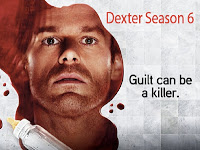 |
| Albert Einstein |
There are various types of personalities out there and each of them tends to have their own approach toward organization. There are those who are messy, whose rooms look like the aftermath of a tropical storm, whose hair is generally disheveled and whose shirts are ironed only on very rare occasions. They have a distraught and sometimes lost look on their face; they may temporarily forget on which planet they live. They can be found among the creative professions, such as the field of poetry and / or higher education.
Then there are those who are spotlessly clean and kempt from head to toe. In fact, every single hair is taken into account and is accounted for. Aside from the fact, they never seem to have had a bad hair day in their whole life (not even in childhood!); their shirts are ironed and starched and their color-coded clothes match perfectly. Everything about their demeanor shows deliberately calculated order. These people are meticulous in their plans and hate events that are unpredictable, such as weather or traffic, something that, in fact, may drive them mad.
Most of us will find ourselves somewhere in the middle of the two, but we do have a certain tendency or proclivity toward one or the other. Now let us call the first one Chaos and the second one Order and see how they have different implications.
Of the two, Chaos is the more dangerous one. He is unpredictable and actually does well in vague and uncertain circumstances as he relies mostly on his creativity to solve problems. The Second Law of Thermodynamics does not affect him; Chaos is not really afraid of falling into further chaos as this is already his element and surrounding, but it is Order who fears and dreads the decay and falls into disorder, his avowed nemesis.
Politically, Order will find more joy and relaxation in clearly defined maxims. Hence his outlook is more conservative, which often promises a more stable basis due its reliance on clearly defined rules and concepts. In the ideal world of Order, there will be no acts of vandalism, no social manifestation but a constant assurance of a status quo that provides a safety net. Anyone who breaks this person's idyll will have to deal with the stabilizing (police) force, which is the “magical” group that tries to maintain order in strict logical defiance to the natural laws of thermodynamics.
Chaos, however, is not fazed by revolutionary movements. In fact, change is not something he fears but rather something that he embraces. Chaos is instinctively against order because he feels that the latter will keep him in a stranglehold. Chaos insists on his own rights and those of others. They are the strong supporters of human rights at the cost of creating revolutions or anarchy so that the world may become a more just place. Chaos and police are often in conflict especially when it comes to ideology because police uphold the status quo and order through the means of authority. Chaos does not believe in authority, which he believes, limits his creative powers, conscience, and freedom.
When it comes to control, Chaos is the more easy-going. Chaos believes in letting be, going with the flow, of taking one day at a time. Chaos does not plan his day, let alone his life. Order, however, is driven toward future success, and it is also why he values money as a safeguard and measuring stick of success. Order believes one ought not to waste a single moment in life. Order is also thrilled by self-improvement and perfection, and he will not give up until he reaches his set goals. Many of these people may turn to religion, which promises and advocates a harmonious balance between this world and the next.
The political world is run more by Order than Chaos. Government per se cannot exist as Chaos or else it will self-implode. Bureaucracy is Order's best friend as it helps organize and classify people, providing a clear overview for Order and aiding him for control and even manipulation.
The capitalist world is made for the ambitious and relentlessly hungry like Order. They thrive under it more than Chaos. Chaos may like its reliance on freedom, but he soon finds out that laziness equates death in such a rapidly progressing world, where material success defines who you are and what you can do. As a result, Chaos may become a socialist; however, he is often disenchanted with communist forms of government, which is, in fact, nothing but Order in disguise.
Of course, these are the extremes. Every artist will need structure amid the chaotic and creative energy within. Structure is necessary for a good work of art as much as ideas. The only exception would be perhaps Surrealism. Yet then again, the moment a manifesto was written about the Surrealist movement, Order gained the upper hand.
I am definitely not advocating that people should become lazy or have no dreams. I am myself enough Order to be disenchanted with any form of anarchy. Revolutions have brought up more of the same old, sometimes even more Order and less freedom. But what I am hoping is that those who are Order will loosen up a little and let some Chaos leap into and seep through their mindset. Chaos is loyal to playfulness and a little play, as the saying goes, will not be bad for Jack's (mental or otherwise) health.


